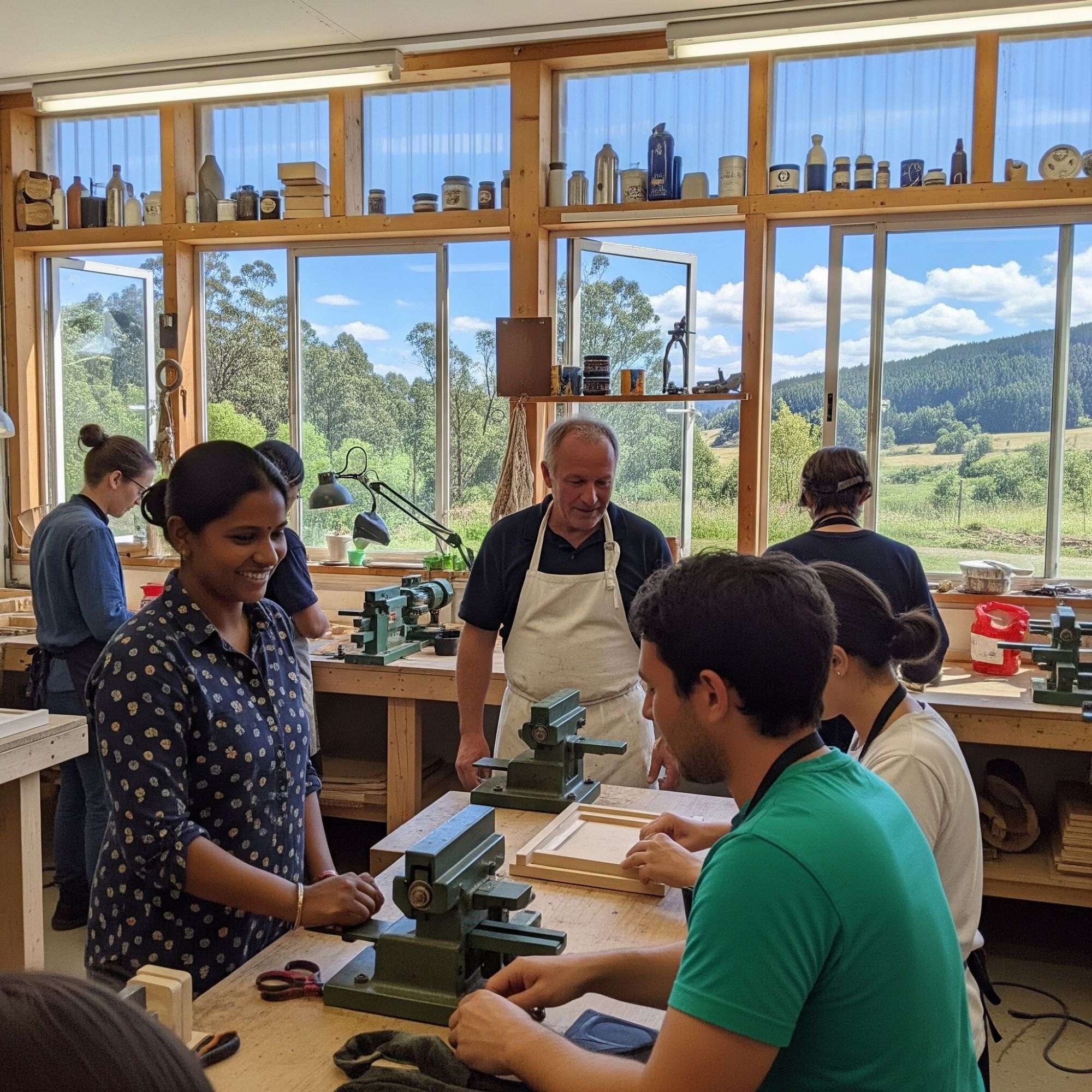Imagine a world where economic activity isn’t just about profit, but also about people and the planet. A world where businesses are deeply rooted in their communities, fostering well-being, sustainability, and genuine connection. This is the very essence of the Social and Solidarity Economy (SSE), and can flourish in the most unexpected and beautiful places: rural areas. Establishing and nurturing an economic activity within the SSE in a rural area is a venture brimming with both unique hurdles and deeply rewarding opportunities. Unlike traditional businesses, SSE initiatives prioritize social and environmental impact alongside financial sustainability, making their journey in the countryside particularly significant.
The Road Less Travelled: Main Challenges
Rural areas, while picturesque, can present significant obstacles for any new enterprise, and SSE initiatives are no exception. One of the primary challenges is limited access to resources. This isn’t just about funding, though securing investment can be tougher in areas with investors less familiar with SSE models.
Another major hurdle is infrastructure. Transportation can be an issue, impacting supply chains, customer reach, and the ability for employees to commute.
Furthermore, market access and visibility can be constrained. With smaller populations, the customer base is inherently limited. Building brand awareness and reaching a wider audience without the bustling foot traffic of a city requires innovative strategies and often greater reliance on local networks. The specific nature of SSE products or services might also require educating a less familiar audience on their value proposition.
Finally, navigating the regulatory landscape can be complex. While general business regulations apply, specific support or frameworks for SSE might be less developed or publicized in rural contexts, requiring more proactive research and advocacy.
Seeds of Change: Main Positive Aspects
Despite the challenges, the rural setting offers fertile ground for SSE initiatives to flourish and make a profound impact. One of the most significant positive aspects is the strong sense of community and social cohesion. Rural communities often have tightly knit social fabrics, fostering a spirit of mutual support and cooperation. This can translate into a loyal customer base, a dedicated volunteer pool, and a willingness to collaborate on shared goals. SSE initiatives can become true pillars of these communities, addressing local needs and building social capital.
Moreover, rural areas offer lower operating costs in many instances. Rent for premises, for example, is typically much lower than in urban centers, reducing overheads and allowing more resources to be channeled towards social objectives. The cost of living is also generally lower, which can be an attractive factor for individuals seeking a more balanced lifestyle aligned with SSE values.
There’s also immense potential for direct environmental impact and sustainable practices. Rural SSE ventures are often intrinsically linked to local ecosystems, whether through sustainable agriculture, eco-tourism, or renewable energy projects. This direct connection allows for the implementation of truly green practices and provides a tangible demonstration of environmental stewardship.
Finally, the opportunity to contribute to local development and revitalization is a powerful motivator. By creating jobs, offering essential services, and fostering local entrepreneurship, rural SSE initiatives can help stem out-migration, boost the local economy, and enhance the overall quality of life. They can become catalysts for positive change, demonstrating that economic viability and social good can go hand in hand.
The journey of establishing and running a Social and Solidarity Economy initiative in a rural area is one that requires resilience, innovation, and a deep-seated belief in a better way of doing business. Rural SSE isn’t just about creating jobs or providing services; it’s about reweaving the social fabric, rejuvenating local economies, and reaffirming the value of community. It demonstrates that economic success can be measured not just in profit margins, but in strengthened relationships, a healthier environment, and a more equitable distribution of opportunity.





